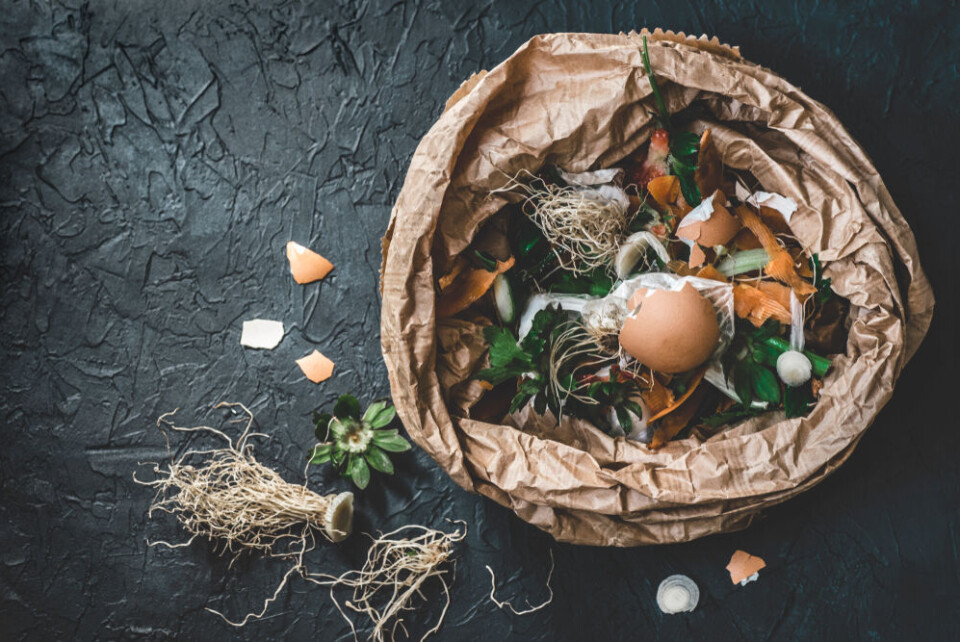-
Exemption from fees to register electric car to end across most of France from May
Applying for a carte grise will soon become more expensive
-
Why you may see a low-flying helicopter near you in west France
Residents of the Loire-Atlantique region may spot the aircraft until at least the end of May
-
Proposal to end 10% tax allowance for retirees in France: Key points
The idea - which has been suggested as a way to reduce the 5.8% budget deficit - is being hotly debated
Seven questions about new obligatory composting law in France
We look at concerns readers have about the rules to sort biowaste from 2024

The new obligation to sort biowaste comes into effect on January 1, 2024. We answer seven common questions about the new rules.
1: What are the new rules?
The new rules state that household ‘biowaste’ must be separated from the rest of your rubbish from January 1, 2024.
Biowaste is:
- Food waste: peel, skins, leftovers, expired food, food from restaurants, etc.
- Green garden waste: grass clippings, dead leaves, clippings, etc.
Local authorities will have to provide residents with either a place to put this biowaste, such as a collective compost, or a collection service, often in a brown biowaste bin.
The rules are part of the Agec law, ‘anti-gaspillage pour une économie circulaire’, or anti-waste law for a circular economy.
This law is also the reason why shops now ask if you want a printed receipt, and why the government is giving a cash bonus to repair old clothes.
Read more: France launches cash aid for people to repair clothes
Read more: How can I prove purchases I have made in France without paper receipt?
2: Does everyone have to have a compost heap?
No.
Households are merely expected to separate their food and garden waste from other rubbish in the same way they already do for plastic and cardboard.
Some local authorities will provide special bins and bags to store it.
However, composting is actively encouraged by the law. Some local authorities can provide or subsidise a compost bin or a worm compost bin.
Read more: Autumn leaves: Rules on what to do with garden waste in France
3: Are local authorities ready?
Do not expect the new law to swing into full effect on January 1 all over France.
Rather, expect it to take the form of an information campaign that slowly builds into a movement over the year.
Some areas have been laying the ground for several years: among them, Nantes, Grenoble, Rennes, Lyon and Montpellier appear to be quite well prepared.
However, most local authorities are not ready and may initially only provide rudimentary solutions and minimal information.
Read more: Most homes in France not ready to separate food waste come January 1
4: Are there any fines for not sorting food and garden waste?
No, the law includes no provisions for fines.
Read more: French homeowners challenge ‘pay per bag’ waste charge
5: How will collective composts work?
Where there are collective composts shared between several houses or an apartment block, there will have to be an association, housing syndicate or designated person to manage it.
Montpellier Métropole told The Connexion that it already offers training days to teach associations and housing syndicates how to manage a collective compost bin.
Composts need managing for a host of reasons, such as to ensure that they are made of the right blend of materials, to moisten them, to stir them, and to distribute the new soil.
Read more: Are you (and your council) ready for obligatory compost law in France?
6: What about bones, meat, and fish?
The guidelines about bones, meat and fish vary.
Industrial composts, which operate at a higher temperature than domestic composts, ensure that they decompose correctly.
However, in a domestic compost, bones, meat and fish remains can last for many months.
In most cases, where a local authority proposes biowaste collection, it will take the waste to an industrial composting or biogas facility, for which bones, meat and fish present no problem.
If you have an individual compost heap, you can compost your own meat and fish so long as you remain attentive to the compost’s composition, and ensure that it does not become unbalanced, which prevents material from decomposing correctly.
However, for shared composts, bones, meat and fish can be more problematic and will depend on the guidelines set out by the person responsible for the compost.
Your local authority will inform you of its own rules by January 1, 2024.
7: Is this hygienic?
You are now expected to have three bins in your home:
- General waste
- Recycling (plastic, packages, card, paper, etc)
- Biowaste
While this requirement may seem unpalatable, it is by no means unhygienic per se.
However it does imply a certain amount of domestic reorganisation.
While the general waste bin no longer needs to be so big, the recycling bin needs its own space, as does a closed, hygienic biowaste bin.
As for composts, they are far more environmentally friendly than incineration or landfills.
While dry and poorly maintained composts can attract rats and mice, the same could be said for poorly maintained bins.
Read more
French homeowners challenge ‘pay per bag’ waste charge
How much has the ‘rubbish bin’ tax for French homes risen this year?
Compost obligation for homes in 2024 in France: how is it advancing?
























